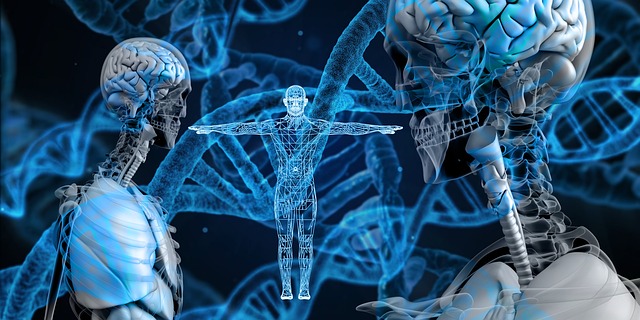Discover the fascinating connection between exercise and brain health as recent research uncovers the role of chemical signals in enhancing cognitive function. Learn how regular physical activity can positively impact your brain and improve overall mental well-being.
Introduction:
Exercise has long been hailed as a key component of a healthy lifestyle, benefiting not only our physical fitness but also our mental well-being. We all know that physical activity helps us stay in shape, but did you know that it also has a profound impact on our brain health? Recent brilliant research has shed light on the fascinating link between exercise and the brain, specifically highlighting the role of chemical signals in boosting cognitive function. In this article, we delve into the scientific findings that reveal how exercise positively affects brain health, providing you with a deeper understanding of why staying active is crucial for your overall well-being.
The Chemical Signals Behind Brain Health:
Our brain is a complex organ composed of billions of cells called neurons. These neurons communicate with each other through chemical signals known as neurotransmitters. These neurotransmitters play a vital role in regulating various brain functions, including memory, learning, mood, and cognitive abilities. Exercise has been found to influence the production and release of these chemical signals, leading to a host of beneficial effects on the brain.
Exercise and Neurogenesis:
One remarkable discovery is that exercise promotes the production of new neurons in a process called neurogenesis. Research has shown that physical activity stimulates the release of a protein called brain-derived neurotrophic factor (BDNF), which promotes the growth and survival of neurons in the brain’s hippocampus, a region associated with memory and learning. By enhancing neurogenesis, exercise helps to improve cognitive function and protect against age-related brain decline.
Improved Blood Flow and Oxygenation:
Engaging in regular exercise also improves blood flow and oxygen delivery to the brain. Physical activity increases the heart rate, which, in turn, enhances blood circulation throughout the body, including the brain. This increased blood flow delivers a rich supply of oxygen and nutrients to brain cells, optimizing their performance and supporting overall brain health. Moreover, exercise stimulates the production of blood vessels in the brain, further improving circulation and enhancing brain function.
Enhanced Mood and Stress Reduction:
Chemical signals released during exercise have a direct impact on our mood and stress levels. When we exercise, our brain releases endorphins, which are natural chemicals that act as mood enhancers and provide a sense of well-being. Additionally, exercise reduces the production of stress hormones like cortisol, helping to alleviate anxiety and improve overall mental health. Regular physical activity has been linked to a decreased risk of developing mental health disorders, such as depression and anxiety.
Cognitive Function and Brain Aging:
As we age, our brain undergoes natural changes that can affect cognitive abilities. However, exercise has been shown to counteract these effects and promote healthy brain aging. Research indicates that physically active individuals have a reduced risk of cognitive decline and neurodegenerative diseases, such as Alzheimer’s and Parkinson’s. By stimulating the production of chemical signals, exercise strengthens neural connections, improves memory, and enhances cognitive flexibility, thereby safeguarding brain health as we grow older.
Conclusion:
The brilliant research surrounding exercise and brain health has revealed the profound impact of physical activity on our cognitive function and mental well-being. By understanding the role of chemical signals in enhancing brain health, we can appreciate the importance of regular exercise as a powerful tool for improving overall mental performance and protecting against age-related decline. So, whether it’s going for a brisk walk, hitting the gym, or participating in a favorite sport, incorporating exercise into your routine can have remarkable benefits for your brain. Embrace the












